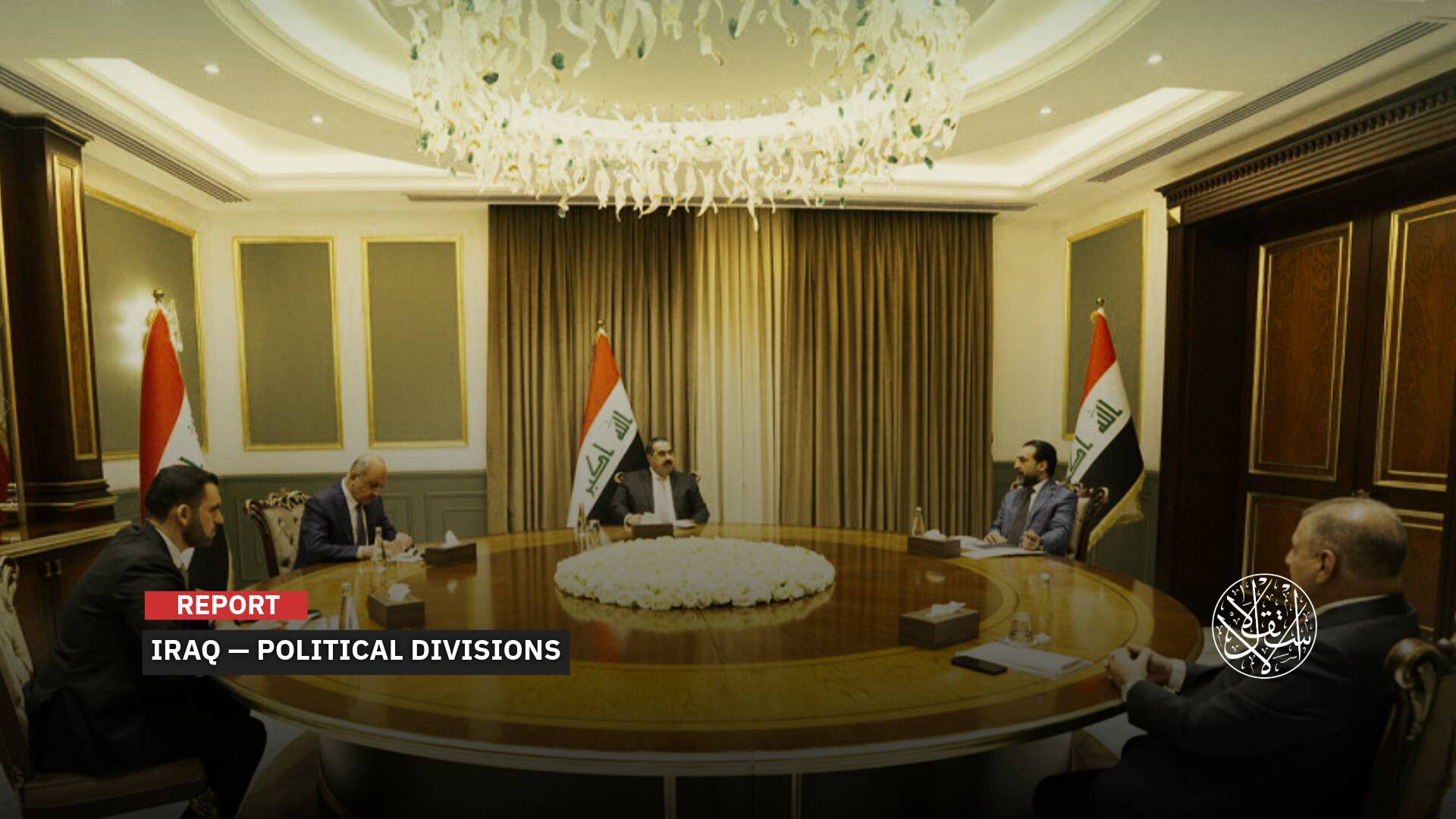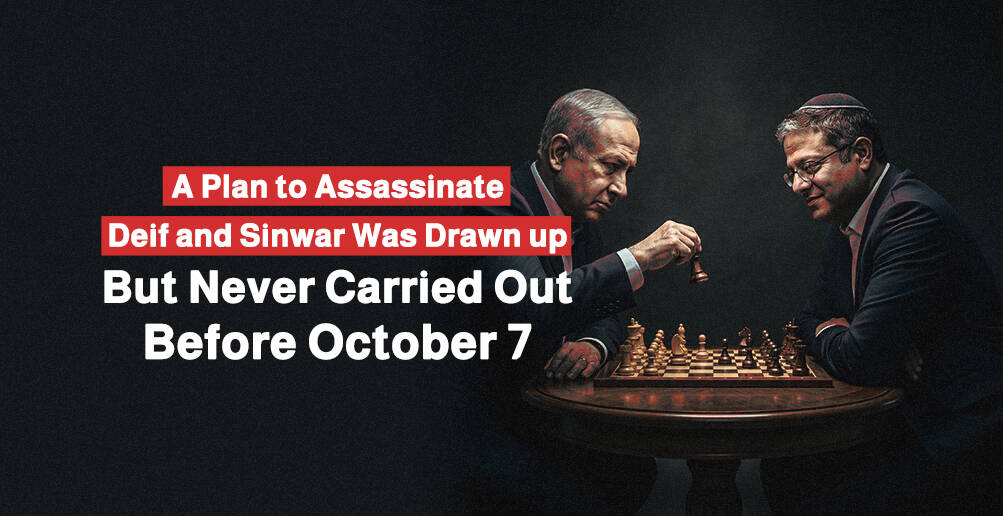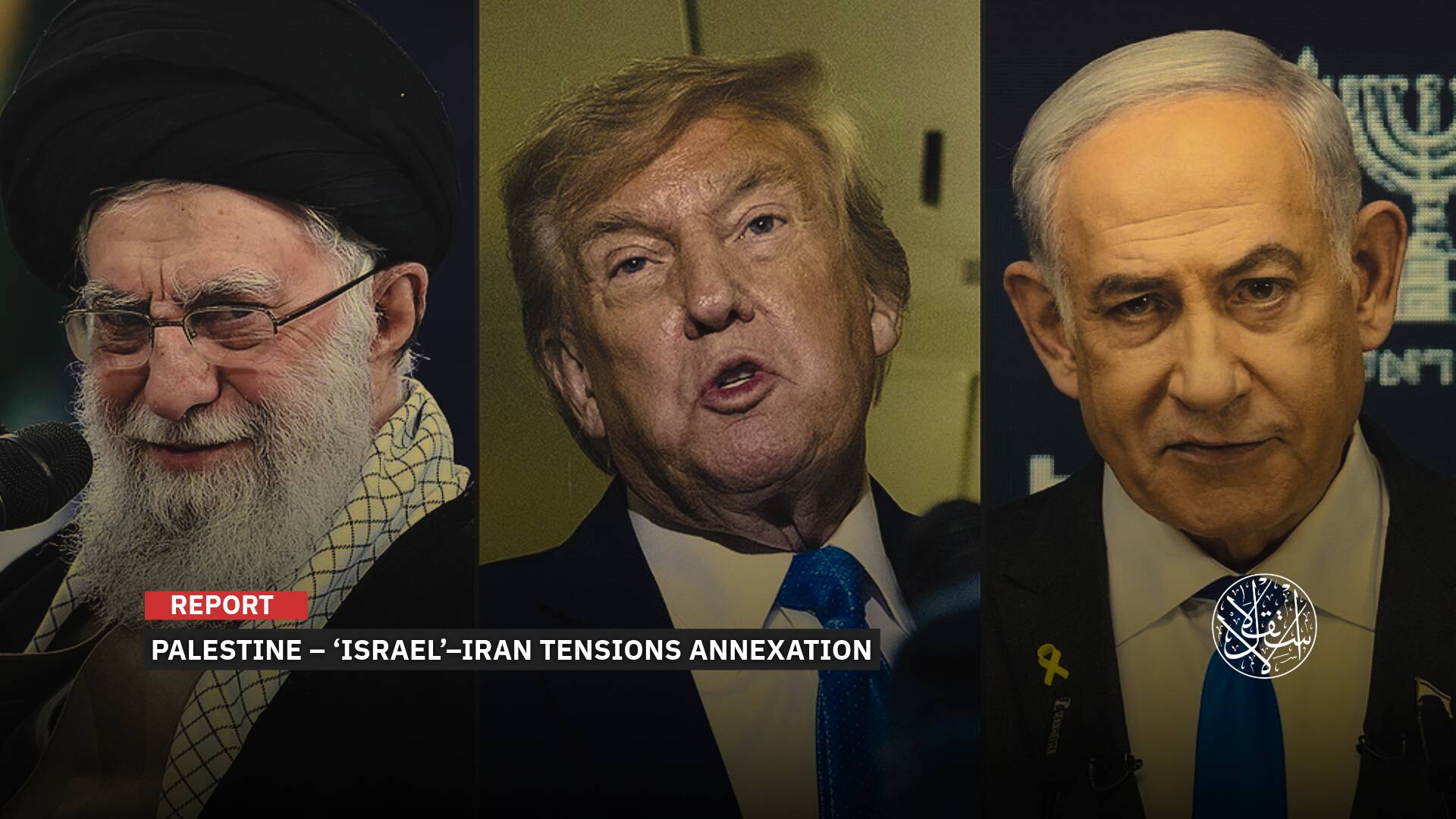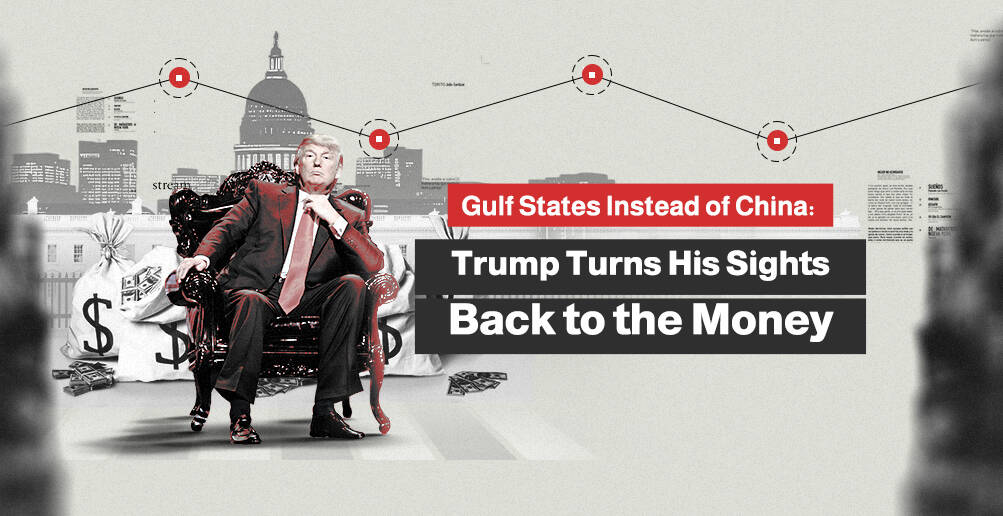Israeli Military Governor Scenario for Gaza: Humanitarian Propaganda or Permanent Occupation?

The Israeli army has created a new military position to govern Gaza.
Two significant developments have occurred in Gaza over the past 48 hours, revealing Israeli Occupation’s intention to remain in the Strip, possibly even returning to the pre-2005 situation when the territory was under occupation since the 1967 war, until former Prime Minister Ariel Sharon withdrew in 2005.
This withdrawal was opposed at the time by the current Prime Minister Benjamin Netanyahu, who, as finance minister in Sharon's government, resigned in protest over the decision.
The first development is the appointment of an Israeli military governor for Gaza, under the pretext of overseeing humanitarian affairs, signaling Israeli intention to stay in Gaza for an extended period.
The second is the approval by the Israeli Occupation’s War Cabinet for the army to remain in the Philadelphia Corridor, adjacent to the Egyptian border, isolating Gaza from the world, with detailed plans for a continued presence.
Military Rule
Following extensive discussions about Gaza's future since Operation al-Aqsa Flood, and with Netanyahu and his extremist ministers advocating for continued presence in the Strip, Israeli newspapers Yedioth Ahronoth, The Jerusalem Post, and The Times of Israel reported on August 28 and 29, 2024, the initiation of military rule in Gaza.
They confirmed that the Israeli army created a new military position for an officer, titled “Head of Humanitarian-Civilian Efforts in the Gaza Strip.”
Yoav Zitun, a correspondent at Yedioth Ahronoth, confirmed the appointment of Brigadier General Elad Goren as head of civil affairs in Gaza, describing him as its military governor.
He emphasized that this indicates the de facto occupation of Gaza, as this position mirrors that of the head of the Civil Administration of the Israeli army in the West Bank.
Yedioth Ahronoth reported that an Israeli source claimed the new officer will manage “humanitarian aspects” and coordinate civil issues in the Gaza Strip.
“This is not a temporary project; this position will be with us for years to come,” a senior defense official told Ynet, dismissing the notion that the Israeli involvement in Gaza will end soon, regardless of the pace of the fighting or any potential hostage deals.
Sources close to Hamas told Al-Estiklal that this move is part of a plan to solidify the occupation of Gaza for a long period and achieve Zionist goals for the "day after," following the failure of ceasefire and prisoner exchange negotiations.
The sources emphasized that the Israeli Occupation's plans will fail, just as Sharon's plan did previously, especially given that the resistance, which forced the earlier withdrawal, is now stronger.
The Jerusalem Post noted that the new appointment wasn't welcomed by all army leaders, not because they opposed occupying Gaza, but due to criticism over appointing Goren, who operates under the Coordinator of Government Activities in the Territories (COGAT) instead of the Southern Command.
COGAT, a unit within the Israeli Ministry of War, coordinates civil and security matters with the Palestinian Authority in the West Bank and Gaza, and is involved in settlement activity.
Yedioth Ahronoth tried to give a "humanitarian" touch to the military governor's role, claiming that his duties include exploring the possibility of returning one million displaced Palestinians to northern Gaza, despite Israeli Occupation’s official rejection of this in negotiations.
The newspaper added that he would also oversee reconstruction projects, coordination with humanitarian organizations, delivery of aid to residents, and preparations for winter.
The same source quoted a security official who said “Goren's mission is to reduce international criticism against us by finding solutions for food and fuel issues, giving the army space to fight and achieve the goals of the war.”
Israeli websites published statements from the new military governor, asserting that the government's failure to define strategic goals for Gaza's future (the day-after plan) leaves the army responsible for life in the Strip, with his mission set to expand in the coming years.
“Anyone who believes that Israeli control and intervention in the Gaza Strip will end soon, whether by stopping or not stopping the fighting and its decline, or even with or without a deal, is mistaken,” The Cradle quoted a senior security official.

Three Theories
Three theories have been proposed regarding the appointment of this Israeli military governor. The first suggests a permanent occupation of Gaza, establishing a new status quo. The second views it as a strategic move to pressure Hamas during ongoing negotiations.
The third theory, which has gained prominence in Israeli media, focuses on portraying “Israel” as a “humanitarian state” that cares for the needs of Palestinians.
According to this narrative, “Israel” appointed a military official to manage civil affairs and provide food and humanitarian aid, aiming to present itself as a protector of Palestinian lives, not an aggressor.
This final propaganda theory was promoted by the pro-Israel American website Foundation for Defense of Democracies (FDD) in a report on August 28, 2024.
“Israel’s efforts to address the humanitarian needs of Gazan civilians are a key element in securing the defeat of Hamas. Throughout the war sparked by its atrocities in southern Israel on October 7 last year, Hamas has deliberately sought to increase the suffering of civilians in Gaza, hijacking humanitarian aid and hiding in shelters, schools, and hospitals used by civilians.” — as claimed by Seth J. Frantzman, FDD Adjunct Fellow.

“By creating a new senior role in COGAT, Israel is recognizing that it needs to have a better strategy for integrating its critical humanitarian work into the larger military and strategic objectives of the IDF. While Israel has done an incredible and unprecedented job of bringing much-needed aid into Gaza, it has often lacked the ability to publicize this vital work to various audiences. Hopefully, this new position will begin to address some of these challenges.” — said Enia Krivine, Senior Director of FDD’s Israel Program and National Security Network.
She clearly added that this would serve as a propaganda tool for the Israeli Occupation government, especially since it has struggled to promote its humanitarian work while facing global criticism for its actions in Gaza.
As part of this propaganda, COGAT's office announced that international and local medical teams would be working to vaccinate Palestinian children against polio at various locations in Gaza.
It confirmed that humanitarian pauses in the fighting in Gaza will allow residents to access medical centers where vaccinations will provided.
Clear Implications
Palestinian analysts view the Israeli Occupation’s appointment of a military governor for Gaza as a clear sign of preparations for a long-term occupation, pressuring resistance groups to surrender, and establishing a local authority alternative to Hamas.
They believe this indicates the Israeli Occupation's intention to implement its "day-after plan” for Gaza, disregarding negotiations and effectively rolling the situation back forty years, to when “Israel” controlled the territory before Sharon’s withdrawal.
Appointing a military governor for Gaza is a clear indication that Netanyahu has shut the door on negotiations and any potential ceasefire with Hamas. This explains Netanyahu’s delay in reaching an agreement and his refusal to withdraw from Gaza or the Philadelphia Corridor, where he has announced plans to remain.
The analysts point out that the announced responsibilities of this new military governor mirror those of his predecessors in Gaza forty years ago, including managing aid, border crossings, infrastructure repairs, and transferring the wounded for treatment outside the territory.
They also highlight that the establishment of this position indicates Netanyahu’s acceptance of military rule in Gaza, contradicting American statements amid growing American complicity with the Israeli Occupation.
Palestinian analyst Sari Orabi stated that the Israeli Occupation’s move is an attempt to revert Gaza to the pre-1994 era, imposing military rule and nullifying the Oslo Accords of 1993.
In an interview with Shehab News on August 30, he noted that the Israelis have no logical solution for the ground war in Gaza other than imposing military rule to dismantle the resistance, allowing military rule to establish a Palestinian self-governing entity linked to Israeli security.
Israeli affairs expert Ali al-Aouar described the decision as a "formal announcement" from “Israel” of its complete occupation of Gaza, implementing Netanyahu's plan to turn the Strip into a closed military zone.
In an interview with the al-Weeam newspaper on August 29, he explained that this decision means all official and civilian institutions in Gaza will fall under the control of the Israeli military governor, effectively nullifying Hamas and the Palestinian Authority’s civilian governance.
"This means the abolition of the mayoral and gubernatorial positions, leaving Palestinian managers to handle their own affairs under the supervision and orders of the Israeli military governor," according to al-Aouar.
Palestinian writer and analyst Fayez Sahmmala affirmed that the appointment of Colonel Elad Goren as the military governor of Gaza is not a political maneuver but part of a Zionist plan to destroy Gaza and the West Bank.
He confirmed on X that militarily governing Gaza is “part of a Zionist scheme, aimed at destroying Palestinian lives in preparation for their displacement.”
Political analyst Talal Awkal told Erem News on August 29, 2024, that the aim of this Israeli decision is to “pressure Hamas and force it to officially withdraw from ceasefire negotiations, then blame it for their failure.”
He added that “Netanyahu is not interested in making any progress in ceasefire talks, and his coalition is determined to sabotage them and prevent an agreement with Hamas, even at the cost of the lives of hostages and detainees.” Therefore, Netanyahu is working to establish a military institution to govern Gaza.
Occupying Philadelphia Corridor
Just 24 hours after the appointment of the military governor, the Israeli Security and Political Cabinet approved, on August 29, the continued presence of the army in the Philadelphia Corridor between Gaza and Egypt, according to Axios reporter Barak Ravid.
This move suggests Netanyahu's plan to reoccupy Gaza and continue the aggression that began in October 2023.
The Times of Israel reported that the War Cabinet approved plans and maps for the Philadelphia Corridor, including the positioning and activity of Israeli forces there, as part of any potential deal, and that these ideas have been conveyed to the United States.
Netanyahu claimed that controlling the corridor would prevent “continued weapons smuggling, which would allow for the revival of Hamas after the war.”

Hamas leader Mahmoud Mardawi said that Netanyahu's maneuver to maintain the Israeli army's occupation of the Philadelphia Corridor "aims to disrupt the ceasefire agreement and prevent a prisoner exchange deal."
“Netanyahu knows that the resistance will not agree to any form of the agreement that provides a cover for his occupation of the Gaza Strip, as the agreement requires the complete withdrawal of the Israeli army, a ceasefire, and an end to the ongoing atrocities,” he confirmed on X.
The daily Israel Hayom described Netanyahu’s decision and the government’s plan to remain in the border area with Egypt on August 30 as tightening the Philadelphia Corridor around Israeli prisoners in Gaza.
Political analyst Shirit Avitan Cohen confirmed that Hamas has not been completely defeated and still possesses combat capabilities. Israeli security circles view the Philadelphia Corridor as the last obstacle in the negotiations.
Implications of the Occupation
The military rule plan for Gaza was rejected by War Minister Yoav Gallant in May 2024 and was also voted against in the war cabinet session on August 29 of the same year.
On May 18, Gallant urged Prime Minister Benjamin Netanyahu to announce the non-establishment of military rule in Gaza. He warned Netanyahu against implementing military rule after the war, advocating for a plan to establish an alternative authority to Hamas.
The plan was also criticized by Haaretz on May 19, 2024, which emphasized that the military rule plan for Gaza must be nipped in the bud: “This nightmarish idea should be nipped in the bud.”
The newspaper noted that the creation of a military administration is the real alternative Netanyahu is considering, supported by the far right, as part of a religious plan rooted in Jewish messianic beliefs.
On May 17, 2024, Yedioth Ahronoth published a document from the Israeli military, revealing that the annual operational costs of military rule in Gaza are estimated at about $5.4 billion. The document estimated the cost of military control at around 20 billion shekels annually and highlighted the need for 400 new positions to manage military affairs in the Strip, along with a significant increase in reserve forces.
Israeli newspapers have begun discussing obstacles to military rule, including ongoing resistance operations and Gaza’s transformation into a blood-soaked quagmire for Israeli occupation officers and soldiers, with 16 Israeli casualties reported in August 2024 alone.
It was noted that, just as the implementation of military rule would extend Israeli aggression in Gaza, the Palestinian resistance would increase its operations, leading to higher casualties and material losses for “Israel.”
Hamas leader Mahmoud Mardawi confirmed this by stating that all of the Israeli Occupation’s plans, including military rule, "will be thwarted by the resistance and will break against the steadfastness of our people despite the sacrifices.”
Mustafa Barghouthi, Secretary-General of the Palestinian National Initiative, stated to Al-Jazeera on August 29 that Netanyahu will not be able to withstand the resilience and resistance of the Palestinians. He emphasized that “Israel” is dragging itself into a quagmire and that Netanyahu is digging his own grave, as he will not be stronger or bolder than his predecessor Ariel Sharon, who withdrew from the Gaza Strip in 2005 after the resistance in Gaza endured for 11 months.
Egyptian writer Ammar Ali Hassan described the appointment of a military governor for Gaza as “Netanyahu's last illusion” and “an attempt to reintroduce traditional, overt occupation.” He pointed out that Netanyahu seems to forget the U.S. attempted a similar strategy in Iraq by appointing a military governor, only to suffer a devastating defeat and ultimately withdraw.
Hassan argued that this decision “undermines any talk of negotiations from the outset and is evidence of Israeli confusion,” which is why it is rejected by military leaders who fear entering into a protracted war of attrition.
Israeli media reported on August 31 that Israeli security agencies oppose the idea of imposing “military rule” in Gaza, warning of severe consequences and additional burdens for “Israel.”
Israeli military and security agencies have outlined grim political, economic, security, and regional scenarios if military rule is imposed on Gaza, according to Carmela Menasha, a military affairs analyst at Channel Makan.
She noted that military rule in Gaza would cost “Israel” $6 billion annually, excluding the costs of establishing military infrastructure and setting up bases within the Gaza Strip. The military burden would also increase, with five military divisions needed to operate continuously in Gaza, responsible for 2.3 million Palestinians.
On the international front, imposing military rule would harm relations with the United States and lead to harsh condemnations and reactions from friendly nations and neighboring countries like Egypt and Jordan, as well as Abraham Accords signatories, potentially even resulting in a severance of diplomatic ties with “Israel,” according to the Israeli analyst.
Sources
- Sources: Israeli Cabinet Approves Continued IDF Presence on Philadelphi Route; Gallant Votes Against
- Israeli affairs expert to al-Weeam: Appointing a military governor for Gaza is an implementation of Netanyahu’s plan [Arabic]
- The Israeli Occupation's attempt to impose military rule in Gaza is doomed to failure [Arabic]
- Senior IDF Officer Appointed to Coordinate Humanitarian Efforts in Gaza
- IDF taps high-ranking officer for new humanitarian liaison role in Gaza
- Chief of Staff Herzi Halevi appoints Elad Goren as new Head of Humanitarian-Civilian effort in Gaza
- As Israel's role deepens, IDF assigns senior officer to oversee Gaza relief operations
- Israeli army sets up new position to control Gaza ‘for years to come’: Report
- Experts reveal Netanyahu's goals in appointing a civilian governor for Gaza
- Ministers back Netanyahu’s demand for IDF to stay in Philadelphi Corridor in any deal
- Israeli newspaper: Is Netanyahu wrapping the “Philadelphia rope” around the necks of the “kidnapped”[Arabic]
- Editorial | Nip Gaza Military Rule in the Bud
- Potential Israeli military control of Gaza could cost $5.4B annually: Report
- What are the goals of Israel's military movements in Gaza and the West Bank? [Arabic]












